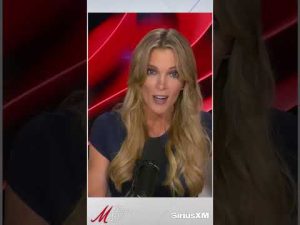In a recent incident, an individual has taken to social media to claim that they are being targeted for harassment due to their controversial views. This situation illustrates the complexities of personal responsibility and the fallout that comes when one mixes inflammatory rhetoric with public life. The person in question, who has been vocal in their criticisms of others, is now facing consequences for their actions. This paints a vivid picture of how accountability works in a society where everyone is entitled to an opinion but must also bear the weight of their words.
It has become increasingly evident that the individual in question believes they are being unfairly persecuted. They argue that the motivations behind the backlash are rooted in racism and white supremacy, asserting that attackers are using children as a shield to mask their true intentions. However, this claim seems misguided. The backlash appears to stem not from a desire to silence the truth, but rather from the hurtful comments made by this person about others, particularly regarding a tragic event involving children. When one chooses to belittle victims, the reactions can be swift and severe.
Moreover, there’s a striking contradiction in the individual’s narrative. While they denounce doxing and harassment, they fail to recognize that their own language has invited such responses. By engaging in hateful rhetoric and shaming others, they have, consciously or not, set themselves up as a target. This raises significant questions about the consequences of one’s actions in the public sphere. If one publicly attacks others, it is reasonable to expect that they may find themselves under similar scrutiny or backlash.
Additionally, the underlying reality of the situation is that many Americans are fed up with the victimhood narrative that often accompanies discussions of race and identity politics. This person’s attempt to frame the discourse around white supremacy comes off as a diversion from the legitimate criticisms leveled against their actions. Instead of taking accountability, they have opted to deflect, which only serves to undermine their position and fosters further division rather than understanding.
As this incident plays out in the public eye, it serves as a reminder of the importance of personal responsibility. The notion that one can speak recklessly without facing any repercussions is not only naive but dangerous. Society thrives on accountability, and when individuals choose to act without consideration for the impact of their words, they must be prepared to face the consequences. In today’s world, where every action is amplified by social media, understanding this principle has never been more critical.
Ultimately, it is essential to recognize that the conversation about race, responsibility, and public discourse should focus on constructive dialogue rather than divisive tactics. The individual in this scenario may be trying to reframe their narrative, but accountability remains paramount. Until people learn to engage respectfully and thoughtfully, we’ll continue to navigate the murky waters of conflict and misunderstanding.







